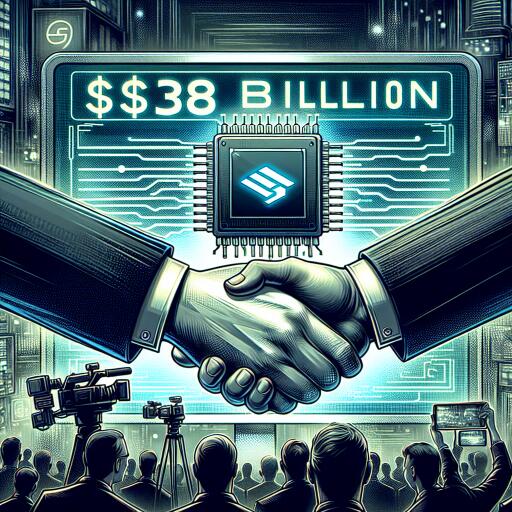Broadcom on the Verge of a $3.8 Billion Deal with KKR for Its Remote Access Business
In a significant move within the tech industry, Broadcom, a leading chip manufacturer, is reportedly finalizing a deal to sell its remote access services division for a staggering $3.8 billion. This division specializes in enabling users to interact with their desktops and applications from any device, offering a seamless remote work experience. The prospective buyer is the global investment firm KKR, known for its vast portfolio of investments across various sectors.
This decision comes on the heels of Broadcom’s ambitious acquisition of the software giant VMware for $61 billion in November last year. Broadcom’s top executive, Hock Tan, appears to be reshaping the company’s focus and offerings post this major acquisition by offloading certain divisions. This strategy includes the proposed sale of the end-user computing (EUC) segment to KKR.
Sources close to the negotiations reveal that KKR emerged as the frontrunner in a competitive bidding process for the EUC unit. The competition included several major private equity entities, highlighting the unit’s valuable place in the broader tech ecosystem. This deal, if finalized, signifies a streamlined approach for Broadcom under Tan’s leadership, focusing on core competencies and strategic assets post the VMware integration.
It is anticipated that an official announcement regarding the transaction could be made as early as Monday, shedding more light on the specifics of the deal and what it entails for both Broadcom and KKR moving forward. However, both parties involved have maintained a level of confidentiality around the discussions, with KKR declining to comment on the matter. Similarly, Broadcom has kept silent in response to inquiries about this significant divestiture.
Besides the EUC unit, Broadcom has indicated plans to divest other non-core businesses, including the security software division Carbon Black, acquired as part of VMware. This move is seen as part of a broader strategy to refocus Broadcom’s portfolio on its primary strengths and drive growth in its core semiconductor and software operations.
Industry observers are keen to see how this divestiture plays out and its impact on Broadcom’s strategic positioning in the tech industry. Similarly, the acquisition could signal a new direction for KKR as it continues to expand its technology investment portfolio, marking a notable entry into the remote access and virtual computing market—a sector expected to grow exponentially in the post-pandemic world.
As this deal nears completion, it highlights the dynamic nature of the tech industry, with major players continually evolving their business models to adapt to new challenges and opportunities. For Broadcom, shedding the remote access unit might just be the strategic move needed to consolidate its position as a leading tech giant in an increasingly competitive landscape.









